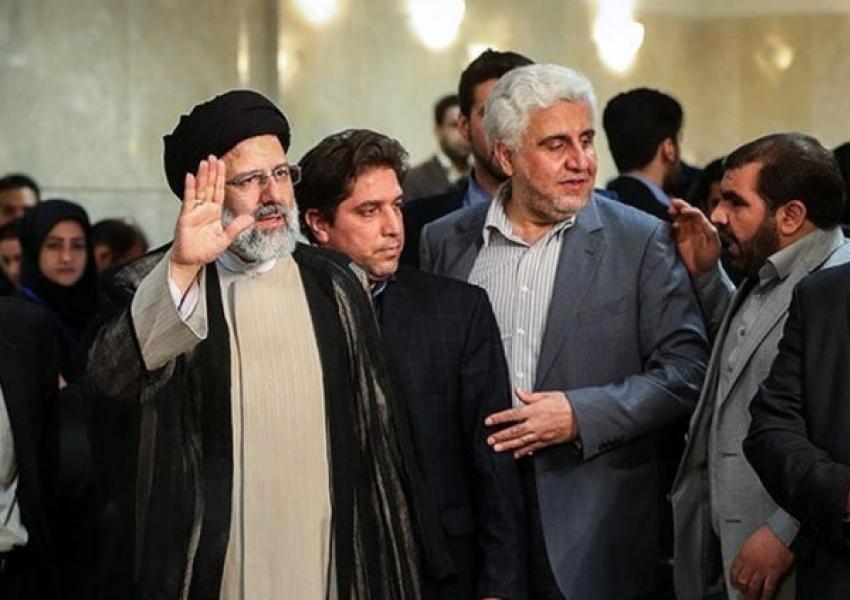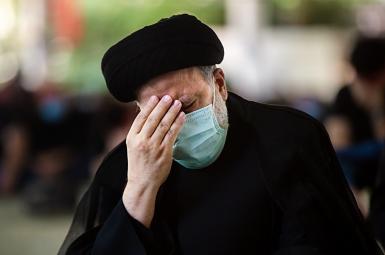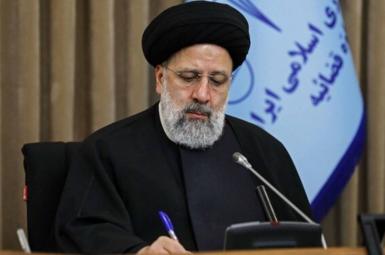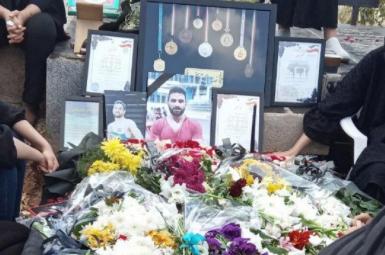
Economists Urge Raisi To Deal With US Sanctions, Define Priorities
Two well-known economists in Iran have said that the new Raisi administration has no time to spend on trial and error and needs to deal with US sanctions and have a well-defined economic policy.
The vice chairman of money and investment at Tehran's Chamber of Commerce Abbas Argoon told Khabar Online website in a 23 July interview that Raisi should work with economists from across the political spectrum. He said Raisi's economic team should try to minimize the impact of sanctions on Iran's economy so that country can return to trading with the world. But he also mentioned that according to rumors Raisi's economic team come from among the [hardline] graduates of Imam Sadeq University in Tehran.”
In another development, Tehran's leading economic daily Donya-ye Eqtesad on 25 July carried an interview with economist Massoud Nili about what he told President-elect Ebrahim Raisi during a meeting with him last week.
Both of these economists have said that trying to lift the sanctions on Iran is key to Iran's economic development. Argoon said that the sanctions have created limitations for Iran and with those limitations returning Iran's economy back on track will be difficult no matter who is going to steer the economy. Argoon also called for a set of reforms inside Iran to reduce inflation and the growth of liquidity and to stabilize the markets.
Iran cannot live in a closed environment and the new administration should start interacting with international players to reduce tensions, said Argoon. He also suggested that Iran should move toward a market economy and provide new chances for the private sector and stop interfering in the economy.
"Without sorting out the problems about Iran's nuclear deal with world powers pressures will continue and as a country where oil export is key to economic growth, Iran cannot afford those pressures any longer," said Argoon. However, asked if Iran's economy is going to look like that of Venezuela, he said the two countries' situations are different.
Meanwhile, Nili said in his interview with the Donyaye Eqtesad that he has told Raisi the first step in properly tackling Iran's economic problems is to recognize its underlying problems. Nili then defined six major problems the economy must solve before being able to think of economic success.
According to Nili, these six problems are about financial resources, energy, natural resources and environment, public services, economic support policies, and putting transactions with other countries in good shape.
But as a key to all these he once again called for lifting the sanctions. "A country plagued by sanctions cannot think of investment and economic advancement," he said.
Nili added that all politicians in the world wish to reduce inflation and unemployment, eliminate poverty and bring about economic growth. What makes politicians different from each other is not their objectives, it is their priorities, and the tools they have available to implement their policies.
Raisi's needs to be prioritizing and deciding which problem should be solved first. It is this prioritizing that makes one politician successful while others fail, he said.
During the past 10 years Iran's economic growth has been nearly nil. This comes while 12 million people have been added to the population during the same period and this makes the issue of supportive policies more urgent.
Nili said "No country can live in isolation." He called for effective relations with other countries, which means correcting Iran's foreign policy and facilitating export and import in a bid to create welfare.








